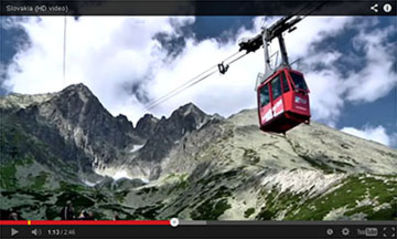Are you a fan of traditional culture? Not yet? After your experience with Slovak traditional dances and music at this event, you will become one. Explore the magic of folk culture whilst attending the next session organized by the House of Traditional Dances in Bratislava during the autumn.
Every month there is a House of Traditional Dances organized by the Dragúni NGO – a dance party in the centre of Bratislava where you have a chance to learn how to dance to the classic folk music or music of various minority groups. The idea of these events is that there are no performers and spectators, there is just dancing and fun! So what is House of Traditional Dances all about?
Rich cultural resources, unique geographic location preserving various shades of temperament, natural communicativeness of music, dance and interactions with the public are the fundamental pillars on which the project The House of Traditional Dances was built. It has been organised in different towns and cities of Slovakia regularly since 2002. The art project applicable in any region of the world makes space for active entertainment – direct enjoyment and development of traditional music-dance art in its entire spectrum.
A flexible and well-working concept based on knowing the history and traditions, and respecting it, has the ambition to enable all participants to experience first-hand – and help create – a splendid atmosphere of live music, making it a good prospect for applying the project in local, national, international and inter-genre context. As you see, Dragúni NGO hold Slovak traditions in high esteem. The House of Traditional Dances project itself was inscribed in the prestigious Register of Best Safeguarding Practices in Slovakia in 2018 thus becoming the best traditional dance party in the country.
This Dance House has two parts. In the first part, the instructors use video projection of authentic records, focusing on teaching one or two folk dances. In the second part, participants try what they have learned in the first part in a form of free entertainment.
Taking place at KC Dunaj in Bratislava city centre on October 24th, 2019, this edition of The House of Traditional Dances will be dedicated to dances from Upper Považie cultural region in the north-western part of Slovakia as well as from Lower Považie cultural region in the western part of the country.
Cheerfulness shown in dance is not enough, therefore you can look forward to interesting presentations and discussions about one of the intangible cultural heritage phenomenons, as the shepherd's pipe will be presented this evening. The Representative List of Intangible Cultural Heritage of Slovakia is a listing of remarkable elements and practices acknowledged by both society and individuals and preserved in compliance with universal principles of human rights, equality, support and mutual respect between cultural societies. The inclusion in the national representative list is a basic condition for applying for the inclusion in the UNESCO World Representative List of Intangible Cultural Heritage.
Come over to enjoy the evening under the leadership of the leading personalities of Slovak folk revival movement Milan Jakoviech and Gábor Gálik as well their spouses with their guests. Pure joy of life expressed in dance will be this time presented through dances from village Brvnište in Upper Považie region and Tvrdošovce in Lower Považie region. Music will be provided by phenomenal Michal Pagáč Folk Band and as a guest Javorníček Folk Band as well.

































